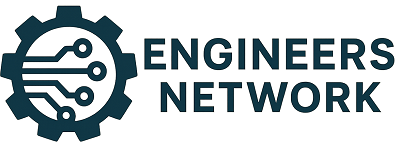Finance is a critical part of operations management. Engineers should have an excellent understanding of finances so they can perform well and stay within budget when executing complex projects. Even if an engineer is part of a team rather than in charge of a project, they are still involved at an organizational level and have influence that can impact the finances of a project.
Engineers need to present an appealing budget when pitching a project
Companies can face stiff competition when offering a proposal to get a lucrative project. Being able to present a realistic budget that is easy to understand can go a long way toward being rewarded a contract.
Of course, companies will be looking to see who can do the project for the lowest cost, but that doesn’t mean the lowest-cost engineering firm is going to be successful. Even if your budget is a bit higher, if you show that you can offer a client more, they still may choose you.
Steps for managing a project budget
- Identify and define the variable and fixed costs
All projects have some expenses that you can affix a number to that is likely to stay the same. There are still other costs that can vary a lot. This needs to be accounted for in any budget plan. Sometimes things happen that are beyond your control. This is especially true even if a project is planned well in advance.
Costs of some raw goods and the associated transport and shipping rates may go up considerably. Plenty of projects were put on hold during COVID-19 not only for lack of labor but due to supply chain issues and shortages of raw materials that are globally sourced. In still other cases, firms were forced to seek out other suppliers at additional cost.
- Track outgoing cash flow in each project area
It should be easy to access detailed financial information that shows outgoing cash flow. For example, project costs may be sorted into the following basic categories: permit and other fees, materials, labor, insurance, etc. This allows engineer project managers to see if spending is on track in all areas. In some cases, costs may come in much lower in one area than expected and higher in another. If funds are needed more in one area than the other, shifting funds around may be the answer. The beauty is that this can be done without going over the allotted project budget, anyway.
- Request funds well in advance
Not having funding in place can seriously delay a project. It can take time for funds to be allocated and made available so that a project can proceed uninterrupted. If you are working with government agencies, you want to allow a lot of extra time because there are often a lot of loopholes to jump through before funds are issued.
Making sure funds are available also eliminates the temptation to use your own funds and tie up your cash flow.
- Learn engineering finances
While all engineers should have a firm grasp of budgeting and finance of projects, it is absolutely critical that project management engineers know everything they can about finance and budgeting. While many modern graduate degree programs build in some financial management classes in their requirements for graduation, plenty of undergraduate engineers do not take enough financial classes.
One way to learn these skills and put your career on the fast track is to pursue an online Master of Engineering Management degree. An advanced degree from the University of Ottawa is affordable and may be completed on a flexible schedule. You will learn everything from how to budget for a project to leading a team toward success.
Engineering managers are in demand and command a great salary. According to salary.com, an engineering manager in Canada tends to earn between $137,000 and $177,000, with factors such as company size, location, years of experience and level of education determining where any given manager’s salary may fall within that range.
- Take a few classes in finance in your spare time
If you already have an advanced degree or just cannot pursue one at this time, then taking a few classes in finance can be very helpful. Sometimes, these classes may be directly tied into project management and leadership so you can hone even more skills.
Good financial understanding helps independent engineering firms stay solvent
Operating your own business or with just a few partners requires a lot of thinking and planning. You need to be able to easily access financial information and be clear about how your overall company finances look. This allows you to place bids for projects that help your company grow rather than put its finances in the gutter.
It is really easy to overlook some operating costs if you don’t have a good grasp of all the outgoing expenses and the actual take-home pay from a project. Have you planned for a project taking longer than you anticipate? If not, then you need to ask yourself if a project can still be profitable for your firm if it runs longer.
Engineers need to understand finances to design new and innovative products
The world is always on the lookout for new and interesting products to improve modern life. Engineers are the ones who design the plans and prototypes of products. In many cases, a company or individual will have an idea for a product but not have the expertise to bring it to the next step. An engineer takes the idea and tries to design an affordable prototype.
When engineers have a good understanding of finances, they can design products faster and within a reasonable budget, increasing the chances that the product will actually make it to the production line.
- Project costs are on the rise
Project managers and engineering firms are under pressure to keep costs down. This is challenging during such an inflationary period of time. While there is only so much cost-cutting that can be done, understanding budgeting and finances can help engineers to create budgets that work and are acceptable from the very beginning.
- Consult with other experts when you can
When trying to get an idea of costs for different materials and components, it is a good idea to consult with niche experts. For example, you may want to consult with a purchaser at a specific firm to get a ballpark estimate on what a component will cost and if costs are likely to go up significantly in the future.
Networking is a great way to learn from others and take your project to the next level.
Engineers must understand the changing supply chain
During COVID-19, there were many shortages. In fact, some supply chains are still feeling the effects of lost production. We live in a world where raw goods are sourced from many places and then processed into something usable elsewhere. When just one necessary ingredient is missing, a major component may not be available to consumers worldwide.
Shipping components takes still more time. Engineers need to be good at sourcing materials and components for projects and prototypes. Even better is if they have a backup plan in case some components or raw materials are not available.
Manufacturing capability is another issue altogether. Some factories or companies may be needed to manufacture a specific product. It can take time to find a factory that can meet the specifications and that is capable of good quality control and volume.
Engineers should expect shortages to continue to be a problem for at least a few years.
Engineers should also improve their communication skills
Communicating well with everyone involved in a project is critical. If there is a communication breakdown, it can lead to frustration and project delays. Regular meetings, either in person or via a popular virtual meeting service, like Zoom, is a great way to keep everyone on the same page. It is easy to record meetings so team members can refer back to a meeting or watch it at their leisure if they are unable to attend the live meeting for some reason.
Writing well is a trait that will come in handy when drawing up proposals and plans. Online classes can help hone those skills.
Project managers need to work well with a variety of people
The more you work with people from many different backgrounds the better. Project managers need to be great at making others comfortable, opening up to them and exchanging ideas. If managers are great at connecting with people, then they will be more successful and get a reputation for being easy and pleasant to work with.
Of course, getting experience like this can take some time. Researching the area and background where you are taking on a project is one method for having a better chance at connecting with others. Of course, you should also let your team know any background information, as well.
Avoid cutting costs so much that safety or quality suffer
As a manager, you may find that you are under a lot of pressure from those financing a project to cut costs. This can happen during the planning phase, but it may come up at other times, as well. It is essential that you know when you need to take a firm stance. There may be actual rules and regulations that you have to go by that make it impossible to make any cuts. If this is the case, then you need to be able to offer this information readily and explain it.
If cuts can be made, but it reduces the quality of a product or project to a level that will reflect poorly on not just your firm but the client, this needs to be addressed. Products that do not satisfy customers will quickly fail. There are plenty of cheap and low-quality products already available. The best idea for a product will fail if quality levels are not acceptable.
Report any unforeseen delays as soon as they do become apparent
Delays happen, but you need to be sure that as soon as you know of a delay in a project you are managing that you report it to your clients and anyone else that has a stake in the project. Be clear on what this means for the completion of the project or the launch of a product.
Do not make promises that you cannot keep. It is far better to estimate the delay taking slightly longer and getting back on track sooner than making unrealistic projections. Being realistic shows stakeholders that you are honest and trustworthy. Not meeting goals time and time again will hurt your company and reputation.
Remember to stay calm
Even the most experienced manager can become super stressed when a project takes a lot longer or clients are asking a lot of questions. Practicing good stress management techniques is important when working on major projects.
Separating work and home life may be hard at times but it is important because it provides the balance you need to do a great job and stay focused when on the job site.
Take some time to do something you enjoy for at least a little while each day. Getting exercise and eating right is also important when taking on stressful tasks.
Conclusion
Understanding finance and budgeting is essential for anyone in an engineering or management position. Knowing how to manage project finances helps keep the project on track and results in more and satisfied clients.
Financial savviness helps clients feel that your firm is trustworthy and honest. When it is clear that a lot of thought and planning has gone into a proposal, it really shows through and increases your chances of success and being recommended for other lucrative projects.
If you have a bachelor’s degree in engineering or an engineering-related field, now is a great time to further your education and go into management.





Leave a Reply